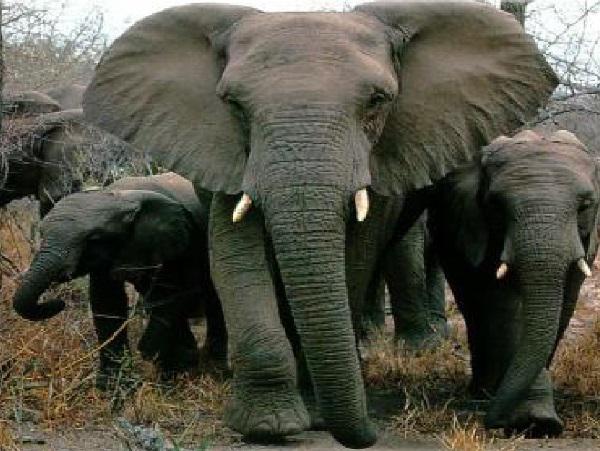Tajudeen Okekunle Amusa
Other projects
3 Mar 2010
Participatory Survey and Conservation of Endangered Savannah Elephants of Kamuku and its Environment, Nigeria
23 Apr 2015
Spatial Distribution and Conservation of Forest Elephants (Loxodonta africana cyclotis) in Southwestern Nigeria
27 Feb 2017
Feeding Pattern, Community Education and Rehabilitation of Conservation Facilities for Forest Elephants in Omo Forest Reserve, Southwestern Nigeria
25 Jun 2019
Strengthening Monitoring Systems for Adaptive Management and Protection of Forest Elephants in Omo Forest Reserve, Southwestern Nigeria
The project will help to conserve key elephant habitats and ensure safe access to critical migration routes and resources.

The project “Understanding Movement Patterns and Resource Needs of Kamuku Elephants Along Migration Routes in Nigeria” is an extension of previous work and conservation activities geared towards the protection of the endangered savannah elephants of Kamuku National Park and its environs. Earlier work on the Kamuku elephants showed some locales within and around the project area are important sites that serve as migration routes for the elephants. Field survey revealed a number of threats to these routes and consequently on the conservation of the elephants. The threats include slash and burn agriculture, pastoralism, poaching, increased settlements and poor communities’ participation in conservation activities. A defining feature of these threats is habitat fragmentation. Therefore, given that elephants often migrate through defined corridors, their migration routes need to be identified and geo-referenced. Efforts are also required to cordon off these places from all form of human activities and ensure that the routes and habitats used by the animals are protected in line with the Bonn Convention.
Increased environmental sensitivity and awareness coupled with sound understanding of movement patterns and resource needs of the animals along migration route will help to conserve key elephant habitats and ensure safe access to critical migration routes and resources. This will provide further impetus for enhanced protection of the Kamuku National Park and its adjoining unprotected habitats as an important elephant range and corridor, linking different locales in north-west and north-central areas of Nigeria. Apart from this, movements in large mammals such as the elephants are considered to be one of the most important ecological factors which influence the distribution of other small herbivores. Thus, protecting elephant migration routes will ensure the conservation of other endangered plants and animals in the project area.
In addition, this project will help to foster effective wildlife management as it highlights key habitats in the landscape. It will also go a long way in reducing habitat fragmentation which has been identified as key threat to the viability of elephant population in the project area. Furthermore, community level conservation education and outreach will persist to help raise awareness and enlightenment of local communities on the need for protection of endangered species and importance of this to local development programmes.